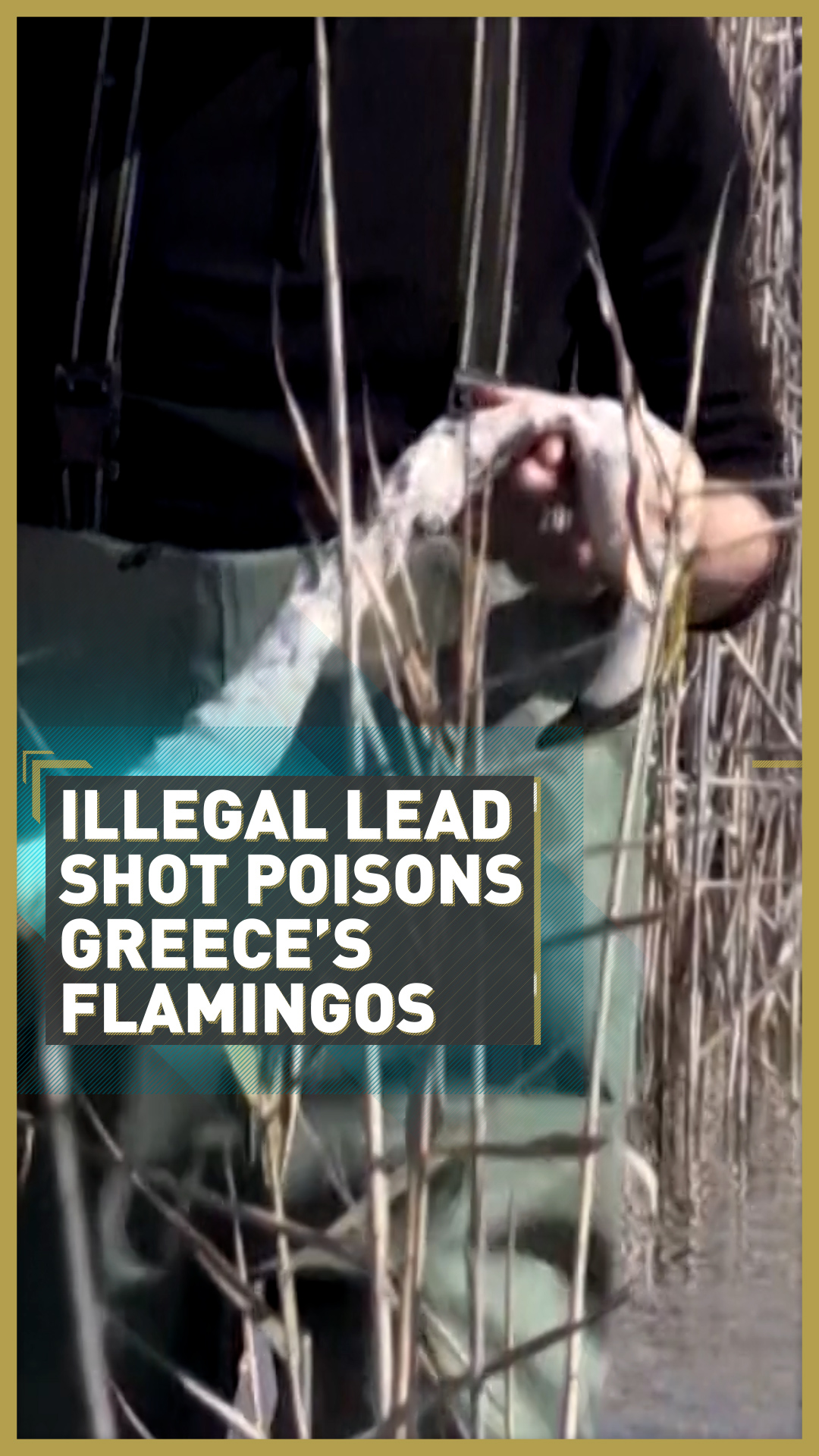01:06

Flamingos are dying in Greece from lead poisoning after eating hunters' shot.
Around 50 of the majestic pink animals have been killed so far at Agios Mamas, a small lagoon in northern Greece, which recently became the first ever breeding ground for the exotic birds in the country.
Flamingos eat small pebbles to aid digestion, but according to the Greek conservation group Action for Wildlife, they have also been eating the poisonous residue of lead shot left by local hunts.
Recently, they found nearly a dozen flamingos in need of medical attention, but none could be saved.
READ MORE:
Finding the courage to fight the mafia
Cambridge dreams turn to nightmares
Switzerland vote on face-covering ban

Around 50 of flamingos have died at Agios Mamas, the first ever breeding ground for the exotic birds in Greece. /Sakis Mitrolidis/AFP
Around 50 of flamingos have died at Agios Mamas, the first ever breeding ground for the exotic birds in Greece. /Sakis Mitrolidis/AFP
Tests have confirmed the cause of death was from lead poisoning, said Sofia Prousali, one of the organization's volunteer vets.
"We ran tests for avian flu and the West Nile virus and they all came back negative," Prousali said.
"All the birds that had these symptoms were found to have pellets in their stomachs," she said.
Agios Mamas is one of Europe's Natura 2000 wildlife diversity regions and is home to nearly 60 different bird species.
Prousali said it was likely other birds had also died from eating pellets, but they had been hidden by the lush vegetation in the lagoon.

Using lead shot in Greek wetlands is illegal, but hunters are continue to fire it. /Sakis Mitrolidis/AFP
Using lead shot in Greek wetlands is illegal, but hunters are continue to fire it. /Sakis Mitrolidis/AFP
The fact the birds are dying just as the site became a breeding ground is particularly shocking, especially since conservationists have been trying to promote mating sites.
"Prior efforts failed, mainly because of human interference with flamingo colonies," said Anna Panagiotou, head of the management authority for protected areas in the broader Thermaic Gulf.
"It would be truly disappointing if such a positive development was thwarted by the insistence of some of our fellow citizens in flouting environmental regulations," she added.
Every year, 4,000 to 5,000 tons of lead are released into wetlands around the European Union from lead gunshot, according to the European Commission, and in November the bloc said it would ban the use of lead in all wetlands.

The EU recently said it would ban the use of lead in all wetlands to conserve wildlife. /Sakis Mitrolidis / AFP
The EU recently said it would ban the use of lead in all wetlands to conserve wildlife. /Sakis Mitrolidis / AFP
The use of lead shot in wetlands has been illegal in Greece since 2013, but wildlife groups say hunters continue to use pellets containing lead.
However, the local hunting association says the issue is being exploited to justify restrictions against them.
"We have strong indications that the case of the dead flamingos, regardless of its validity, is used for anti-hunting aims," the hunting association of Macedonia and Thrace said.
But according to Quentin, a 22-year-old French volunteer, the ban hasn't stopped the sound of gunshots in the area.
"Even though hunting was forbidden under coronavirus restrictions, we would still hear shots from poachers. It's unbelievable."
Video editing: Steve Chappell
Source(s): AFP

